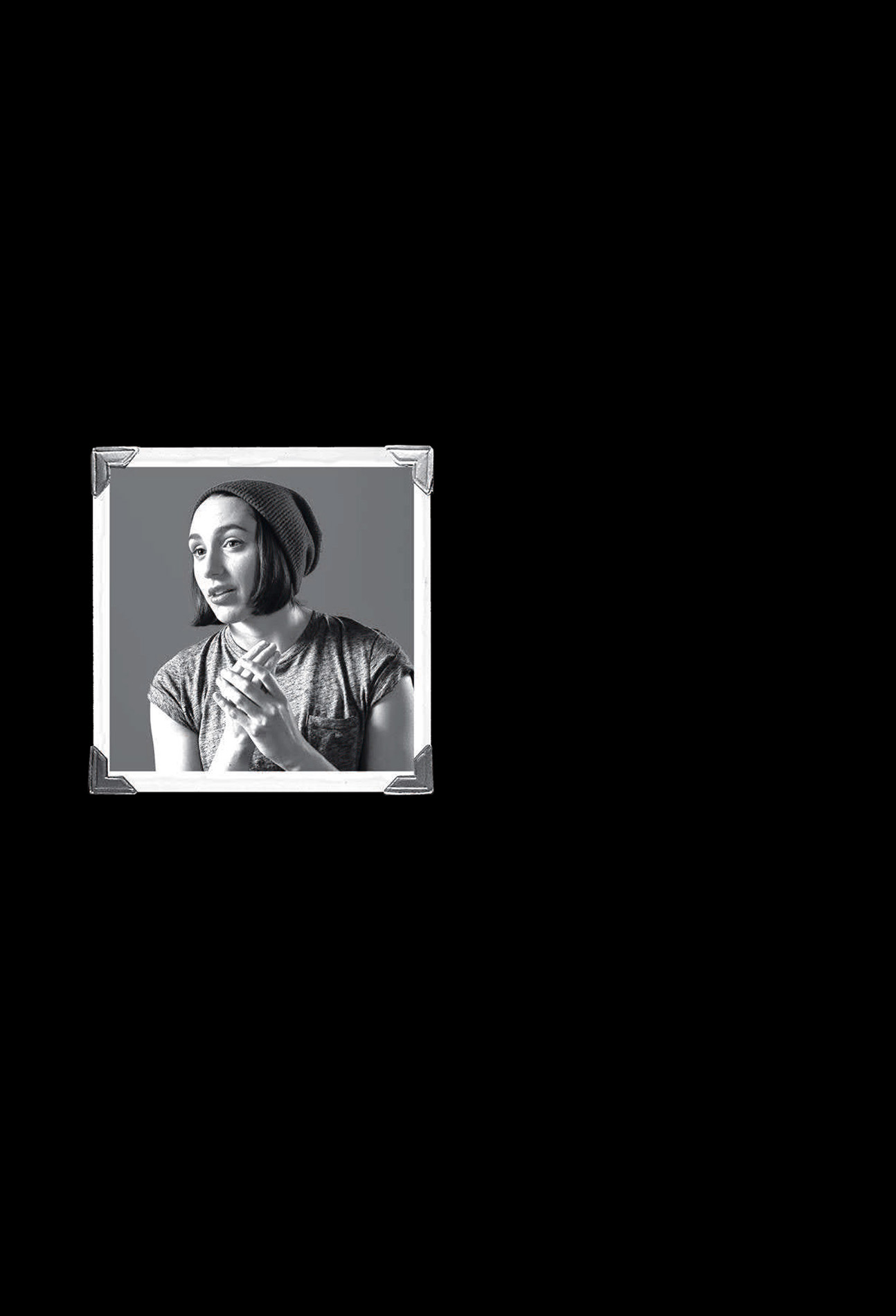
“I’ve been out of fucks to give
since the early two-thousands.”
since the early two-thousands.”
LOST BUT
HOPEFUL
HOPEFUL
JO TAYLOR
Played by LAUREN PATTEN
WRY JOKESTER, TRACK JACKET ENTHUSIAST, BEANIE WEARER, SARDONIC REALIST, QUEER ACTIVIST, THE “ONLY INTERESTING PERSON” IN GREENPORT
First things first: her name is “Jo,” not Joanne. She’s not a fabric store. The only people who call Jo by her full name anymore are her mother, who binge-watches Fox News, and Father Tim, the homophobic priest at her mother’s church who tells Jo that she can “pray the gay away.” But Jo has no intention of denying her sexuality—she is 100% queer, and proud of it. She feels best in slouchy beanies and sporty track jackets; the scratchy pink cardigans her mother makes her wear to church socials make her feel like crawling out of her skin. In Frankie, she has found the one person in Greenport she can really talk to; they bond over being outsiders, being queer, being political radicals, and being really good kissers.
When Jo sings “Hand in my Pocket,” she is singing for her entire generation, most of which were born after Jagged Little Pill, the album, came out. Even though they didn’t inspire the original song, Jo and her peers see themselves in the lyrics, which suggest a playful duality, and a confused internal logic. A person can be high and grounded, sick and pretty. Jo feels like she contains multitudes. She wants to subvert the binary, to undo all of the rigid boxes that we feel the need to shove ourselves into. She sees gender as a construct, and feels that labels only hold people back. Still, she believes in loyalty. Which is why, when she catches Frankie in bed with Phoenix, she feels so betrayed. How could Frankie abandon her for the safety and security of a heterosexual relationship? Has Jo’s need to laugh off her insecurities led to Frankie not taking her seriously as a romantic partner?
Jo’s “You Oughta Know” is a howl—not just for herself, but for all queer people who feel invisible. She wants the world to know that “I’m here” and that she isn’t going away. She gets a cathartic moment between herself and the audience, and through her release, she allows the audience to process their own hurt and pain and emerge feeling cleansed and ready to hope again. At the end of the show, Jo may still be working through her pain, but, as she tells Frankie, “I’m figuring it out.” She has a new girlfriend, a new sharp style. She’s still turning everything into a joke (“it’s called a defense mechanism,” she says), but now she is able to control the laughs—and to feel a new lightness in her heart.